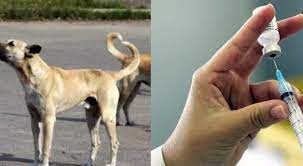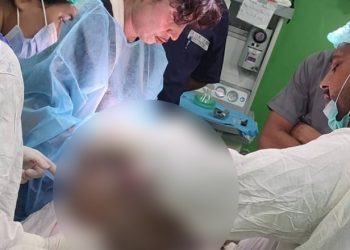A Maryland man who made history as the second person to receive a transplanted pig heart has sadly passed away, nearly six weeks after the groundbreaking surgery, according to an announcement from his medical team in Maryland.
Lawrence Faucette, aged 58, was facing heart failure and was ineligible for a conventional heart transplant when he received a genetically modified pig heart on September 20. For the first month, the transplanted heart appeared to be functioning well. However, in recent days, it displayed signs of rejection, and Faucette passed away on Monday.
In a statement shared by the hospital, Faucette’s wife, Ann, expressed that her husband understood his time was limited and saw this experimental procedure as his last opportunity to give back. She noted that he never expected to survive as long as he did.
The same medical team had performed the world’s first heart transplant from a genetically modified pig into a terminally ill patient just the previous year. David Bennett was the first recipient, surviving for two months before the transplanted heart failed, with the cause not entirely clear.
Subsequent investigations identified signs of a pig virus in the organ. Lessons from this initial experiment led to adjustments in the procedure, including more rigorous virus testing, before the second attempt with Faucette.
Dr Bartley Griffith, the surgeon who led the transplant at the University of Maryland Medical Center, highlighted Faucette’s last wish—to use the knowledge gained from their experiences. Animal-to-human organ transplants, known as xenotransplants, have faced challenges for many years, primarily due to the rapid rejection of foreign tissue by the recipient’s immune system.
Now, researchers are exploring the potential of using genetically modified pigs, whose organs are designed to be more compatible with humans.
Lawrence Faucette, a Navy veteran and father of two from Frederick, Maryland, had been declined for a conventional heart transplant due to other health issues when he sought treatment at the Maryland hospital. His primary goal was to spend more time with his family.
In mid-October, the hospital reported that Faucette had made progress, including standing and participating in physical therapy to regain the necessary strength for walking.
Dr. Muhammad Mohiuddin, the leader of the cardiac xenotransplant team, stated that they will thoroughly analyze the events surrounding the heart transplant as they continue their investigations into pig organ transplants.
The hope is that xenotransplants may one day address the substantial shortage of human organ donations, potentially saving the lives of the many people currently on transplant waiting lists.
Scientists are exploring pig-to-human organ transplantation by conducting experiments on pig organs in monkeys and human cadavers. The goal is to accumulate sufficient data to support formal xenotransplant studies sanctioned by the Food and Drug Administration.
This research could offer hope to the over 100,000 individuals in the United States awaiting organ transplants, primarily for kidneys, with thousands succumbing to their conditions while on the waiting list.

















































